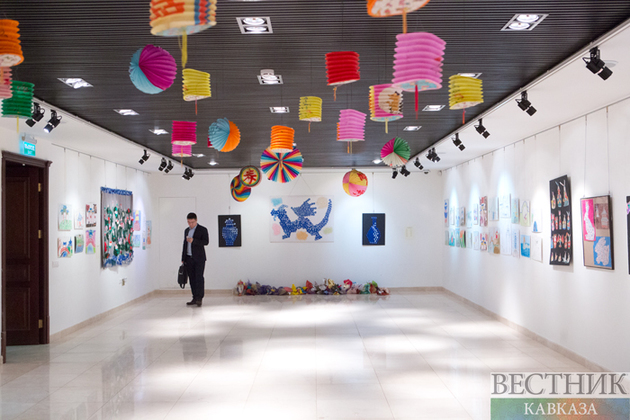Investors wanting to gauge the health of global consumer sentiment should look no further than China’s factories right now. Makers of Christmas decorations to clothing and tents say orders from overseas customers are drying up, with some predicting the best they can aim for is flat demand versus last year, according to more than a dozen export managers interviewed by Bloomberg News.
The snapshots from factories in key Chinese hubs indicate households worldwide, already tightening their belts to contend with a rapid rise in the cost of living, may be cautious for longer and adds weight to warnings about a potential global recession.
“Consumers don’t have the money to spend with soaring inflation” and the decline in demand has happened suddenly, said Wendy Ma, marketing manager at a textile maker in the eastern city of Ningbo. Orders for items including buttons, zippers and sewing thread dropped about 30% in July and August from a year earlier as demand from major markets like the US and Europe declined, she said.
The reports from manufacturers suggest the resilience being seen in China’s export data may fade. That said, the boom has been somewhat helped by price inflation as well as Chinese manufacturers making up for delays from pandemic lockdowns and orders that were brought forward in light of ongoing supply chain distortions.
“The general direction is export growth will slow down in the coming months, and it’s possible to reach a negative territory by the end of the year,” said Larry Hu, head of China economics at Macquarie Group Ltd. Still, the decline in demand for China-made goods will be gradual, instead of a collapse, he said.
The fading strength in exports could add another blow to a Chinese economy that’s already showing a slowdown in some aspects. China’s central bank unexpectedly cut its key interest rates on Monday to ramp up support, as official data showed retail, investment and industrial production numbers for July all missed economists’ estimates.
Headwinds have been slowly building for months. Clark Feng, whose Vita Leisure Co. buys tents and furniture from domestic manufacturers to sell overseas, said export orders have been dropping since March and European clients are only asking to buy about 30% to 50% of what they wanted last year. Workers in some of the factories he sources from have been laid off or sent on vacation, something he hasn’t seen in his decade in the industry. Overseas clients are looking to clear their existing inventories instead of ordering new products, Feng said. “Our products were very popular last year, and now we swing from one extreme to another extreme and the demand is even lower than pre-pandemic. There’s a sense of panicking.”
Bloated Stockpiles
Over the last year, inventories at companies in the S&P consumer-discretionary and consumer-staples indexes rose by $93.5 billion, a 25% increase, according to data compiled by Bloomberg. That came after companies bulked up purchases in 2021 to cope with lengthy shipping delays, and as some front-loaded their Christmas orders.
It’s also coincided with a shift in global consumer spending toward services, rather than goods, as travel demand picks up in many parts of the world. Retailers such as Walmart Inc. and Target Corp. are slashing the prices of merchandise such as apparel and home goods, even as they charge more in other categories amid soaring US inflation.
Many retail buyers need to lock in orders in advance, meaning a downturn now is a sign that consumer demand may be weak for months, according to some firms. Joe Kwok, general manager at Shanghai-based textile and garment manufacturer Hengda Printing & Dyeing Co., said his top sportswear and retail clients have cut orders by as much as 30% since June. He forecasts demand will remain low for a year or two.
Chinese manufacturers will find it difficult to make up for the overseas shortfall in their home market. The country’s adherence to Covid Zero, which includes sudden lockdowns, constant testing and movement curbs, has weighed on consumer sentiment and wrought havoc on the manufacturing sector. Yiwu, the world’s biggest hub for Christmas goods from tree ornaments to plastic reindeer, shows how precarious business can be.
Over the weekend, the city extended a lockdown that continues to ban most residents from leaving their homes, as the outbreak that started this month topped 630 infections. The city was also locked down in April, but the latest restrictions are a major setback for manufacturers in the middle of what’s usually their busiest season for production and shipping.
Omicron Disruption
Exporters have learned from previous disruptions, and brought forward their delivery schedule by a month or more in anticipation of uncertainties, according to Cai Qinliang, secretary-general of the Yiwu Christmas Products Industry Association, which has 200 members that own 500 to 600 factories. But it’s not enough to support a full recovery. Cai said Christmas-related business was slashed by more than half in 2020 as the pandemic threw the global trade into disarray and major customers canceled orders. Sales improved last year, though were still 20% to 30% lower than before the pandemic, and may hold at that level this year, he said.
It’s a situation echoed 250 miles to the north, where Melissa Shu said she’s gone from working overtime last year at a manufacturer of LED car lights in the city of Zhenjiang to facing an order book that’s fallen by at least a third. Clients “are acting with a great deal of caution,” said the export manager. “The macro-economic environment is dim -- the war, the inflation, the living crisis -- none of us can escape.”






